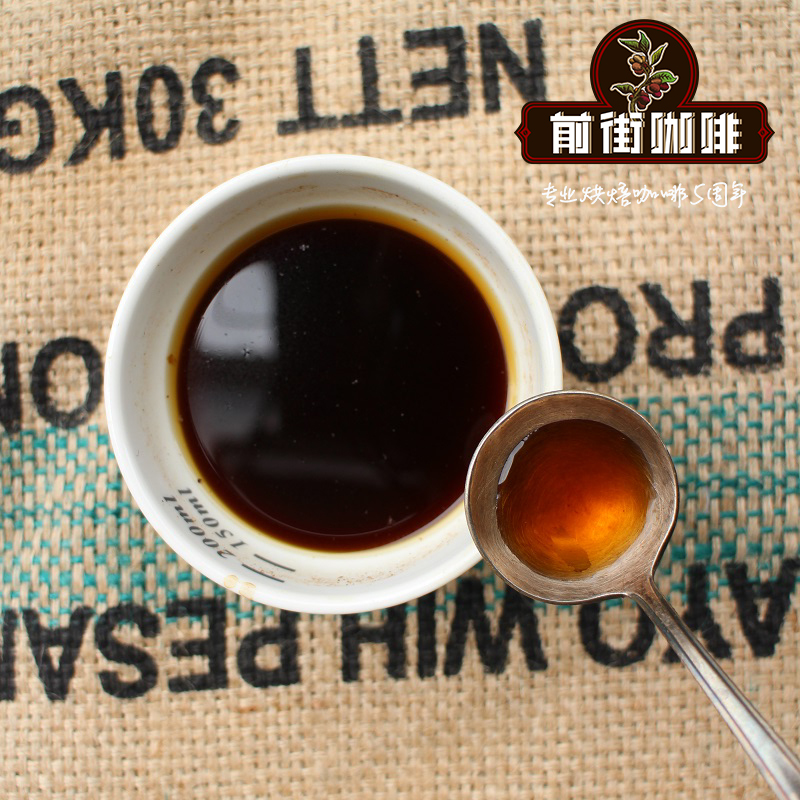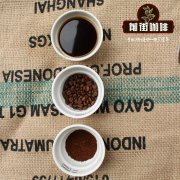Ethiopia Yega Sheffield Ahlei small farmers wash G1 what is the variety and flavor?

Professional coffee knowledge exchange more coffee bean information please follow the coffee workshop (Wechat official account cafe_style)
Ethiopia is an agricultural country with a history and tradition of coffee origin. The place where the name "coffee" comes from is Kafa in the southwest, while the Sidamo place in the south is the main producing area, and Yega Xuefei is one of the southern producing areas of Sidamo. The eastern highland Harald is as famous as the coffee name "Harald".
Ethiopia is an important coffee producer with about 12 million people engaged in coffee production and is a major exporter of Arabica coffee beans in Africa. The high-quality coffee here is of excellent quality and is worth looking for. It has a soft taste, with wild flavor of wine, and slightly sour taste, unforgettable after drinking.
Experimental micro-batch! Fermentation time 36 hours special batch
Under the ECX classification system, Yejiaxuefei can be divided into four producing areas-Wenago, Yirgacheffe, Kochere and Gelana Abaya. In recent years, Gedeb has often been isolated as a micro-production area, and this batch is from the Waka production area (Worka Kebele) located in the Gedeb at the southern tip of Yega Sheffield. In the early years, the region used the name of Waka to export locally produced coffee beans, or handed over to the Waka Cooperative to handle, and now many self-employed small-scale farmers are also members of the Waka Cooperative, so the technology of producing coffee is of course not to mention.
Each farmer can harvest an average of 1 to 2 hectares of farmland. After the ripe cherries are peeled and pulped in a washing plant, they will ferment for 24-36 hours, depending on the weather. Then wash the surface mucus and soak in clean water for 12-24 hours. After the whole washing process is completed, the viaduct in Africa is exposed to the sun for 10-15 days and dried in natural sunlight. In the process of drying, it must be fixed and turned over so that the air can circulate and dry evenly.
Yega Xuefei coffee trees are mostly planted in farmers' own backyard or mixed with other crops in the field, with little yield per household, which is a typical pastoral coffee. These mountain villages are foggy, like spring all year round, with a gentle breeze in summer, cool but not hot, rain but not damp, and no cold damage in winter, giving birth to a unique regional flavor of citrus and flowers.
The so-called 'Yega Chuefei' refers to the strong aromas of jasmine, lemon, peach, almond and tea.
Just like a flower touches the comfort of taste buds and olfactory cells in the nasal cavity. In addition to the fragrance of the flowers, the delicate mellow thickness (body) is like a silk massage in the mouth.
Dry aroma: lemon peel, white peach, flower fragrance
Wet fragrance: apricot, floral notes, orange
Sipping: citrus, orange, black tea, lemon grass, orange blossom, the overall flavor is clean and delicate.
Important Notice :
前街咖啡 FrontStreet Coffee has moved to new addredd:
FrontStreet Coffee Address: 315,Donghua East Road,GuangZhou
Tel:020 38364473
- Prev

Ethiopian Yega Snow Coffee G2 Bell Mountain Manor Sun-treated Flavor
Professional coffee knowledge exchange more coffee bean information please follow the coffee workshop (Wechat official account cafe_style) Yega Xuefei in the ECX production area classification system can be divided into four producing areas Wenago, Yirgacheffe, Kochere and Gelana Abaya. In recent years, Gedeb has often been isolated as a micro-production area, and this batch is from Gedeb at the southern tip of Yega Sheffield.
- Next

Introduction to the flavor of grapefruit G1 washed coffee in Yegasuefei Guji, Ethiopia
More information on coffee beans Please follow Coffee Workshop (official Wechat account cafe_style) among the coffee-producing countries, Ethiopia has an almost legendary status, not only because it is the birthplace of Arabica coffee, but also because it is different from most coffee-growing countries, coffee is not a plant that colonizes an alien cash crop. Planting, processing
Related
- Detailed explanation of Jadeite planting Land in Panamanian Jadeite Manor introduction to the grading system of Jadeite competitive bidding, Red bid, Green bid and Rose Summer
- Story of Coffee planting in Brenka region of Costa Rica Stonehenge Manor anaerobic heavy honey treatment of flavor mouth
- What's on the barrel of Blue Mountain Coffee beans?
- Can American coffee also pull flowers? How to use hot American style to pull out a good-looking pattern?
- Can you make a cold extract with coffee beans? What is the right proportion for cold-extracted coffee formula?
- Indonesian PWN Gold Mandrine Coffee Origin Features Flavor How to Chong? Mandolin coffee is American.
- A brief introduction to the flavor characteristics of Brazilian yellow bourbon coffee beans
- What is the effect of different water quality on the flavor of cold-extracted coffee? What kind of water is best for brewing coffee?
- Why do you think of Rose Summer whenever you mention Panamanian coffee?
- Introduction to the characteristics of authentic blue mountain coffee bean producing areas? What is the CIB Coffee Authority in Jamaica?

